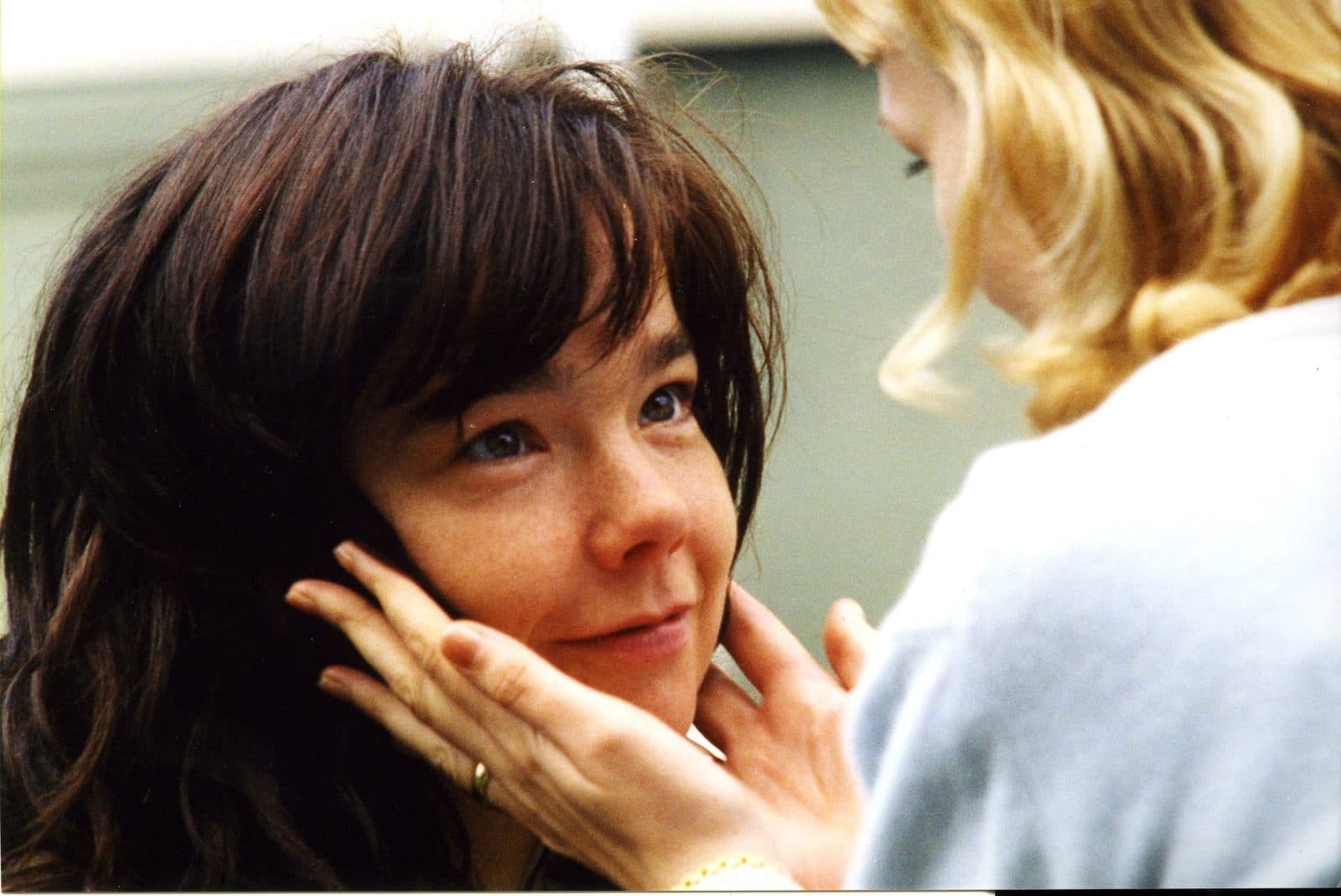Zou het toeval zijn dat verschillende van mijn favoriete films zijn gedraaid door de Nederlandse cameraman Robby Müller? Of dat diverse internationale regisseurs hun beste werk met hem maakten? Is het soms ook toeval dat Müller zijn eerste korte film Toets draaide in het revolutionaire jaar 1968?
Wie weet. In mijn herinnering leeft Müller vooral voort als een bescheiden maar sterk sfeerbepalende kracht achter de nieuwe cinema van de jaren zeventig en daarna. De tijd van de eerste filmhuizen en de beginjaren van het Rotterdamse festival. De tijd waarin filmmakers zoals Wim Wenders, die een groot aantal films met Müller maakte, lieten zien dat alles anders kon.
‘Schilderen met licht’ werd zijn werkwijze vaak genoemd. Director of Photography Robby Müller draaide in totaal meer dan zeventig films en leverde daarmee een belangrijke Nederlandse bijdrage aan de internationale filmwereld. Zijn familie maakte bekend dat hij op dinsdag 3 juli in zijn woonplaats Amsterdam is overleden. Müller was al geruime tijd ziek.
Feeling voor karakter
Robby Müller werd op 4 april 1940 geboren op Curaçao. Zijn jeugd bracht hij tot 1953 in Indonesië door. Op de Filmacademie (1962-1964) specialiseerde hij zich in camera en montage, waarna hij naar Duitsland vertrok. Daar ontmoette hij Wim Wenders, die op het punt stond een van de voormannen van de nieuwe Duitse cinema te worden. Het was het begin van een vruchtbare samenwerking. Enkele andere belangrijke regisseurs waarmee hij later zou samenwerken zijn Jim Jarmusch, Lars von Trier en Steve McQueen.
In 2002 draaide hij zijn laatste lange speelfilm: 24 Hour Party People van Michael Winterbottom. Hij schoot deze hilarische terugblik op de Britse punkscene in de brutale, geïmproviseerde stijl van een namaakdocumentaire. Müller zorgt hier voor het onverbiddelijke gevoel dat je alles ter plekke meemaakt. Een stijl die naadloos aansluit bij het verhaal. Want dat was de grote kracht van Müller. Een perfecte feeling voor het karakter dat een film nodig had.
De kracht van natuurlijk licht
Het is bijna paradoxaal dat zijn meesterschap ogenschijnlijk zo terloops en onopvallend is. Hij wist films een ongecompliceerd gevoel van ‘echtheid’ te geven. Er zijn veel anekdotes over Müller die laten zien hoe hij het liefst zonder plan van start ging. Als het ware gewoon bij nul beginnen en kijken wat nodig is. Wars van regels was hij. Een aanbod om de derde Harry Potter-film te doen sloeg hij af omdat daar naar zijn mening al veel te veel van te voren vaststond.

Müller zocht graag de expressieve kracht van natuurlijk licht. Niet voor niets werd hij wel eens vergeleken met Vermeer. Soms wilde hij perse wachten op de juiste lichtval, maar hij kon ook snel en zonder poespas improviseren. Wars van effectbejag, maar wel gretig inhakend nieuwe ontwikkelingen. Voor Lars von Triers Dancer in The Dark (2000) gebruikte hij honderden kleine digitale camera’s.
Ultieme roadmovie
Mijn kennismaking met het werk van Robby Müller valt samen met mijn ontdekking van Wim Wenders. Dan denk ik vooral aan diens ultieme roadmovie Im Lauf der Zeit (1976). Een film om je in onder te dompelen. Meereizen met die twee zwijgzame, eenzame mannen die door het Duitse achterland trekken om in dorpsbioscoopjes de projectoren te repareren. Een film die ook al reizend werd geschreven. Door Robby Müller gefotografeerd in een prachtig zwart-wit dat de flow van de betrekkelijk losse gebeurtenissen op een even onbevangen als eerlijke manier neerzet. Een film als het leven zelf, zo dachten we toen een tikje romantisch.
Na Der amerikanische Freund (1977) nam Wenders tijdelijk afscheid van Müller en was hij zeven jaar zoekende. Hij vond zijn vorm pas terug toen hij Müller weer inschakelde bij Paris, Texas (1984). Hij zag dat in Cannes beloond met de Gouden Palm. Daarbij speelden ongetwijfeld Müllers eenvoudige, maar glasheldere en uitgekiende beelden van een aangrijpende zoektocht naar liefde in een soms vervreemdend landschap een grote rol.
Visuele blues
Een andere filmmaker die veel aan Müller te danken heeft is Jim Jarmusch, in de jaren tachtig de grote held van de onafhankelijke Amerikaanse cinema. Treffend voorbeeld is Down By Law (1986). Een curieuze komedie met drie mopperende antihelden (waaronder Roberto Benigni) in een wonderlijk niemandsland. Ook hier weer beelden die tegelijk betoverend en nuchter realistisch zijn, en een heel eigen toon zetten. Een visuele blues noemde ik het destijds.
Hoe het camerawerk van Müller een film op een onverwachte manier een ziel kan geven zien we ook bij Lars von Triers Breaking the Waves. Een verpletterend melodrama dat het onwaarschijnlijke verhaal vertelt van naïef Schots meisje en haar door een ongeluk verlamde echtgenoot. Een zelfopoffering en een heus wonder completeren het geheel. Het had gemakkelijk een draak kunnen worden. Het zijn vooral het fenomenale spel van Emily Watson en Müllers rusteloze, in reportagestijl geschoten beelden die dat voorkomen. Het aardse gaat hier hand in hand met het spirituele. Breaking the Waves werd in Cannes onderscheiden met de Grote Juryprijs. Later kwam daar onder veel meer de Felix voor beste Europese film bij.
Bekroning
Het werk van Robby Müller zelf werd ook vele malen bekroond. In Nederland kreeg hij in 2007 het Gouden Kalf voor de Cultuurprijs en het jaar daarop de Bert Haanstra Oeuvreprijs. In Amerika ontving hij in 2012 de International Achievement Award van de American Society of Cinematographers. Het EYE Filmmuseum eerde hem twee jaar geleden met de tentoonstelling Master of Light.
Onmogelijk om hier een opsomming van zijn films te geven. Klik daarvoor de IMDb aan. Laat ik volstaan met een paar voorbeelden die zijn veelzijdigheid onderstrepen. William Friedkins gewelddadige wraakdrama To Live and Die in L.A. (1985) naast Barbet Schroeders kroeglopersfilm Barfly (1987). Sally Potters autobiografische en artistieke ontdekkingstocht The Tango Lesson (1997) naast het oorlogsdrama Korczak (1990) van de Poolse grootmeester Andrzej Wajda. In Nederland werkte hij tweemaal samen Frans Weisz, die hij kende van de Filmacademie. Met hem draaide hij Een zwoele zomeravond (1982) en Hoogste tijd (1995).
Een later dit jaar te vertonen documentaire over Robby Müller en zijn unieke werkwijze is gemaakt door Claire Pijman onder de titel Living the Light.
